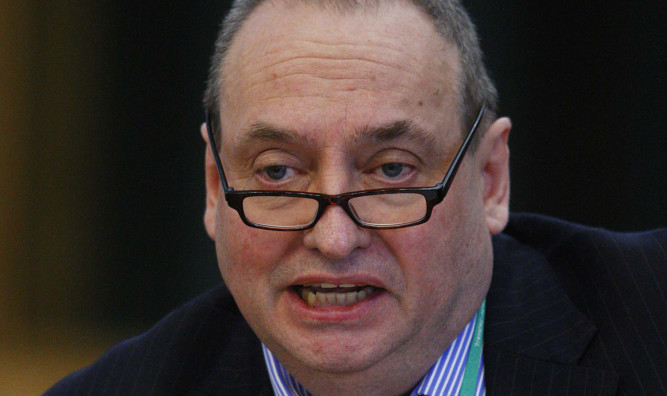The director of BBC Scotland has said he is determined to change audience perceptions of news and current affairs output after a survey found less than half of Scottish people think it is good at representing their lives.
Ken MacQuarrie told MPs on Westminster’s Scottish Affairs Committee meeting in Dundee that the corporation is “concerned” about the finding and is working to understand it.
But he dismissed claims that the BBC demonstrated “unconscious bias” during its coverage of last year’s Scottish independence referendum.
In July, an annual report found 48% of Scots believe the BBC is good at representing their lives through news and current affairs, compared with 61% in England, 61% in Northern Ireland and 55% in Wales.
Mr MacQuarrie said the figure is “not something that we are comfortable with”.
He was pressed on the issue by the committee chairman, SNP MP Pete Wishart, who said: “Aren’t you profoundly disappointed in the findings of your own survey to show that less than half of the Scottish people are unhappy about the way that the BBC is presenting Scottish life?
“That should really be having all sorts of alarm bells ringing, surely.”
Mr MacQuarrie said: “I’m absolutely concerned by that figure. I think what I’m determined is to understand the figure and change it and to produce a programme offer that meets the needs of the audience in Scotland.
“So I take a very positive attitude towards addressing that audience need and making sure we do it well.”
He added: “We are in the process at the moment of understanding exactly what’s driving that difference between ourselves and the other nations.
“It’s a key objective for us to meet the needs of the audience with a news and current affairs service that is both relevant to their lives but also appreciated by the audience.”
Chris Law, the SNP MP for Dundee West, questioned Mr MacQuarrie on research by Professor John Robertson, author of a University of the West of Scotland report on BBC and ITV coverage of the referendum.
Prof Robertson concluded there was evidence of coverage “which seems likely to have damaged the Yes campaign”.
Mr MacQuarrie said he did not accept the suggestion put by Mr Law that there was unconscious bias in the BBC’s coverage.
He said: “We have engaged with Prof Robertson’s research. We have some criticisms of, if you like, some of the methodology that Professor Robertson used, but I think the important thing is that we are going to listen and do listen very carefully to our audience in terms of any aspects of dissatisfaction.”
